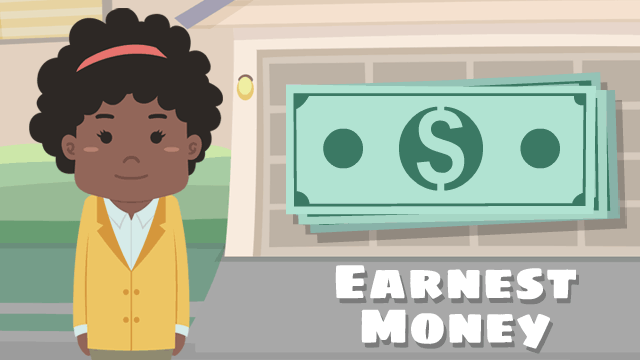Earnest Money
Related Terms: Earnest Money Contract, Earnest Money Deposit
Earnest Money is paid by the buyer to confirm that he/she is serious about purchasing from the seller. This deposit becomes part of the down payment and closing costs once the deal is finalized. However if you don’t close on the property, it is not guaranteed that you will be reimbursed for the deposit.

Once your offer has been accepted by the seller, you must pay the earnest money deposit. In most cases, it is paid to the title company, and in others it is held by the real estate broker in escrow. It is important not to make this deposit directly to the seller, since it can be very difficult to get the money back in case the deal falls through. No matter who holds the deposit, there is no guarantee that it will be returned if you choose not to close on the house.
The earnest money deposit is usually 1 to 2 percent of the purchase price, but sometimes sellers could set a flat amount. There are different regulations on the earnest money limits depending on the state. In some instances where you may not be able to make a large enough down payment, you may have to make a larger-than-normal earnest money deposit to prove that you will be able to make future mortgage payments.
The earnest money deposit is usually 1 to 2 percent of the purchase price, but sometimes sellers could set a flat amount. There are different regulations on the earnest money limits depending on the state. In some instances where you may not be able to make a large enough down payment, you may have to make a larger-than-normal earnest money deposit to prove that you will be able to make future mortgage payments.

Do you know what's on your credit report?
Learn what your score means.





